What’s inclusion?
Did you know?
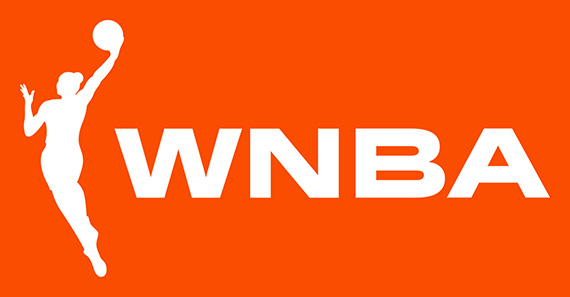
WNBA logo
Did you know the NBA was the first men's professional league to launch a professional women's league (WNBA) in 1996?

Inclusion is an important concept in life as well as sports— it means accepting, valuing, and incorporating individuals or groups into a community.
Inclusion is an ongoing process. This means that inclusive practices need to be constantly re-evaluated and examined to make sure inclusion is prioritized and maintained.
Inclusive practices seek to promote equity in life, work, and sports.
An important aspect of inclusive practice is equity. While equality means each individual or group is given the same resources or opportunities, equity recognizes that each person has different circumstances and offers resources and support needed to achieve an equal outcome.
Have you encountered the term equity before?
Try it!
When you think of the word “equity,” what are a few words, images, or ideas that come to mind?
Record your ideas in the following mind map provided or in another method of your choice.
The following interactive is functional on desktop only.
Press the Start button to access the following interactive. This interactive will open in a new window.
Are you ready to learn about inclusion? Let’s begin!
Inclusive practices
A’ja Wilson
My grandmother couldn't even walk on this campus; she had to walk around [it]. If she was here today to see her granddaughter has a statue where she once could not walk ... it goes to show how you just plant seeds, and that's what it's all about.
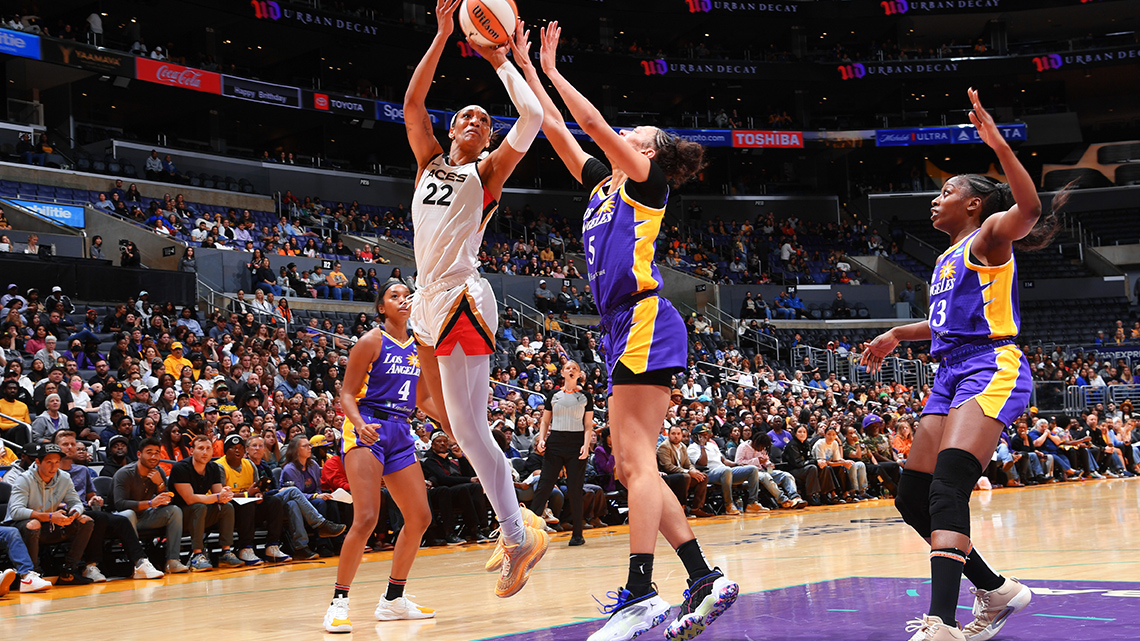
A’ja Wilson, #22 of the Las Vegas Aces (2023), with Lexie Brown, #4 of the Los Angeles Sparks (2023), Dearica Hamby, #5 of the Los Angeles Sparks (2023), and Chiney Ogwumike, #13 of the Los Angeles Sparks (2023), May 25th, 2023.
Definition
Equity
Equity refers to allocating resources, programs, and decision-making in ways that results in similar opportunities and benefits to all participants.
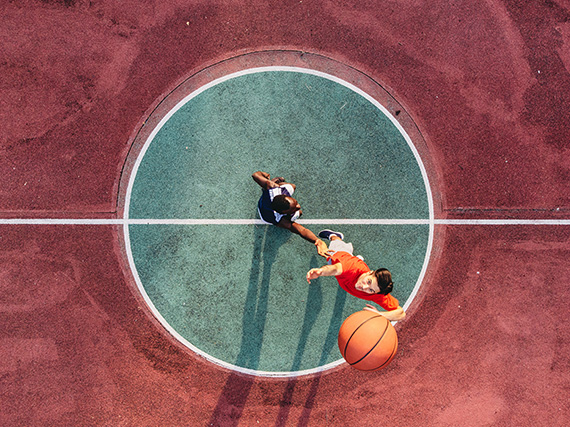
A safe, inclusive space is one where everyone involved can feel like they belong and are valued, that their perspectives are respected, that they face no barriers to leadership roles, and are encouraged to take on leadership roles.
Think
Can you think of ways sports can be made more equitable?
An inclusive and equitable space is one where any group, including a sports team, can thrive! Fostering a sense of belonging for all individuals means that a team can be even closer, and play even better! However, it is important to constantly revisit practices and habits to make sure inclusion is ongoing. Sports organizations must work to create safe spaces for individuals to share their identities and speak about their needs.
NBA Moment
In 2022, the NBA released a social impact report. This was the league’s first annual compilation of data and information regarding the NBA’s efforts in what is commonly known as “Environmental, Social, and Governance“ (E.S.G.) work. The report includes the league’s work in community outreach, youth and elite basketball development, social justice, and diversity and inclusion.
Adaptive sports
Have you encountered the term ‘adaptive sports’ before? Even if the term is unfamiliar, you may have noticed that some sports can be played with equipment, such as a sport wheelchair for wheelchair basketball or wheelchair tennis.
For instance, the Paralympics is an international sports event that focuses on differently-abled athletes participating in adaptive sports.
Examine the following image. What do you notice about the sports wheelchair? Which features stand out to you?
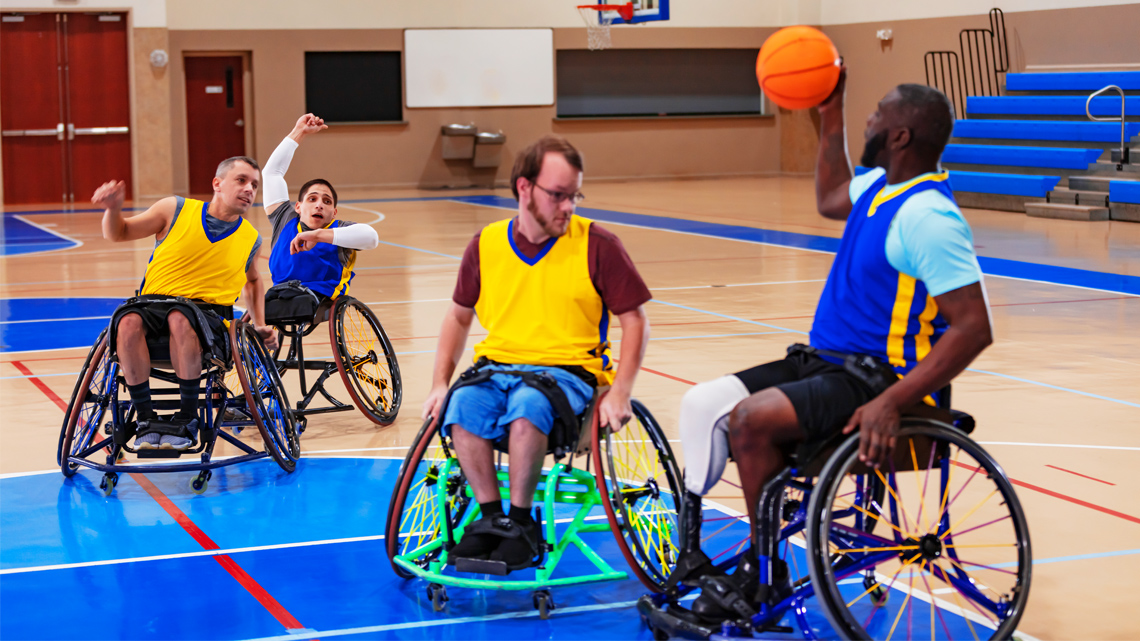
Press Show Suggested Answer to compare your thinking.
Some differences you may have noticed are the large, slanted wheels and smaller rear and front wheels. The slanted wheels provide improved control and balance for fast movement, and the smaller wheels are arranged for sharp turns.
There aren’t any armrests, and straps are included to secure the athlete in the chair.
These wheelchairs are designed differently for different sports.
Explore this!
Now that we have explored the specific features of sport wheelchairs, it's time to explore how athletes use them to navigate the court. Check out the follow clip that explains the rules of wheelchair basketball!
Note: The video uses the term ‘able-bodied.’ This term is used to describe someone who does not identify as having a disability. Some members of the disability community oppose its use because it implies that all people with disabilities lack “able bodies” or the ability to use their bodies well. They may prefer “non-disabled” or “enabled” as being more accurate.
Some sports, like sitting volleyball, may not require specialized equipment. In sitting volleyball, the format and rules are adapted to include more players.
Participating in physical activity is not only healthy— it’s also an effective way to socialize! By adopting equitable practices to adapt sports, more people can enjoy the benefits of sports.
Take a moment and reflect on your learning!
Try it!
Is it inclusive?
Review the following statements and determine if each statement is an example of an inclusive or non-inclusive practice.
Then, press Check Answer to check your understanding.
Continuous inclusion
Equity and inclusion are ongoing practices. More people can be included through adaptive sports techniques and equipment, and it is essential to revisit our inclusive practices to make sure sports can be inclusive and fun for everyone!
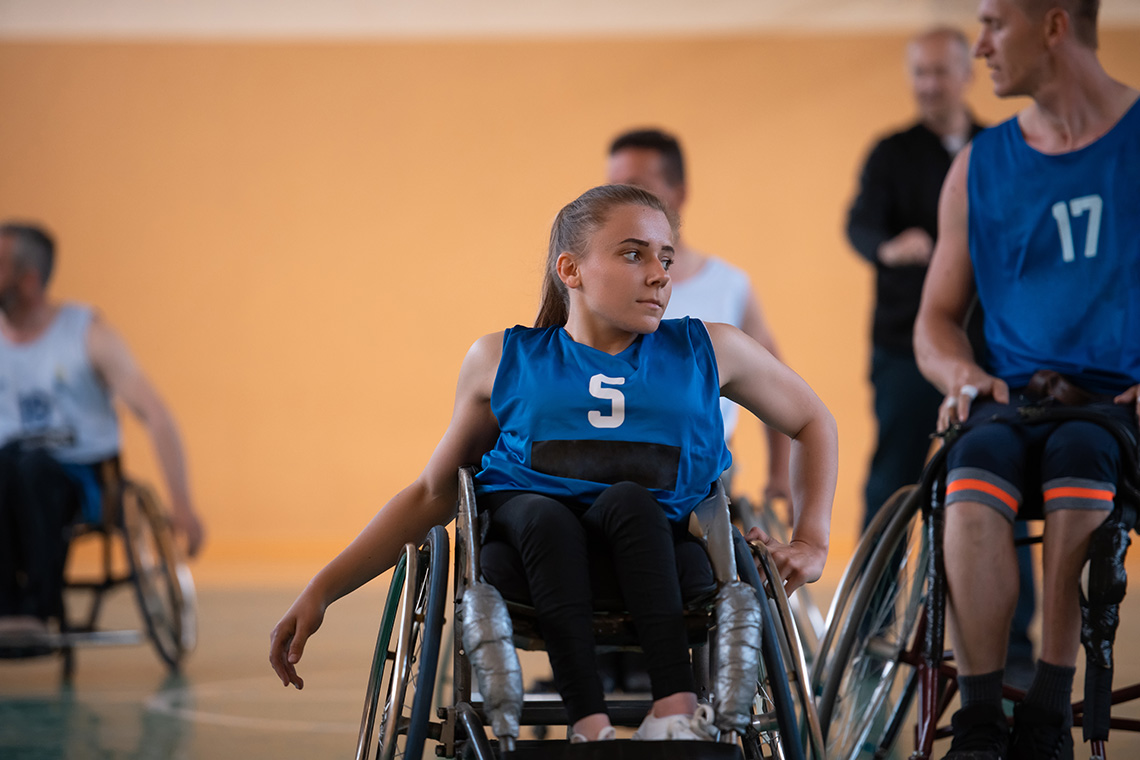
Try it!
Case study
Reflecting on what we have learned about inclusion, create a case study about a specific situation where inclusion skills are being used.
The case study can be based on a situation that you have personally experienced, or it can be completely fictional.
Consider the following questions:
- How do inclusive practices benefit all people? What are the benefits of developing and implementing inclusive practices?
- How can barriers to inclusion be removed?
You may record your case study in any method of your choice.
Excellent work! You’ve learned a lot about inclusive practice and why it’s important in life as well as in sports. You deserve a break!



